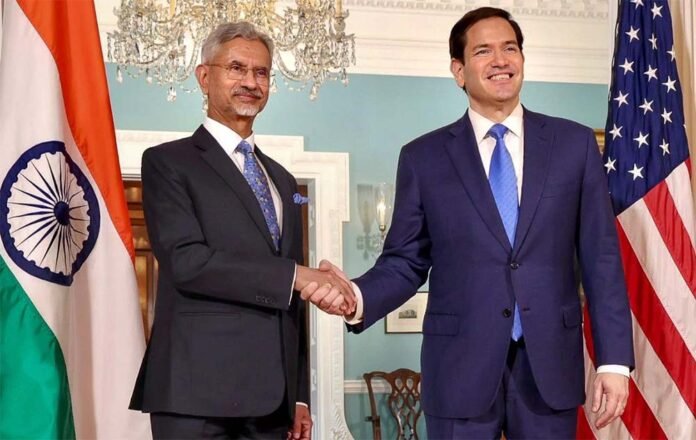New Delhi: The United States’ recent actions regarding tariffs and sanctions on countries purchasing Russian oil have prompted extensive discussion, particularly as explained by US Secretary of State Marco Rubio and President Donald Trump.
In the context of mounting global tensions surrounding Russian energy exports, the Trump administration imposed a 50% tariff on Indian imports—which includes a direct 25% penalty specifically linked to India’s purchase of oil from Russia. This move was designed to discourage New Delhi from continuing trade with Moscow, positioning economic pressure as a strategic tool.
President Trump asserted in an interview that warning India of these tariffs led to an abrupt decline in India’s Russian oil imports, with India being Russia’s second-largest oil customer and its purchases mounting close to China’s, the leading buyer. Trump contended that such penalties had a material impact on Russian calculations, compelling Moscow to request a meeting with Washington DC, underlining the efficacy of the US fiscal pressure in reshaping energy alliances and reinforcing the notion that the loss of major buyers would be economically consequential for Russia.
Secretary Rubio, providing further context, clarified the administration’s approach to China and Europe compared to India. While the US had imposed immediate penalties on India, it delayed similar sanctions on China—the largest buyer of Russian oil—by extending the tariff deadline by an additional 90 days past the original August 12 cut-off.
Rubio explained this delay was a result of the profound implications secondary sanctions would have on the global oil market. Targeting China, he noted, would create widespread disruptions: since China refines much of the Russian oil it purchases and subsequently sells derivative products into the global market, outright sanctions would spike worldwide prices and disrupt supply chains for multiple nations, not just the intended sanctions target.
Rubio pointed out that any attempt to go after Chinese oil imports from Russia could have a ripple effect, ultimately forcing buyers worldwide to pay more or scramble for alternative sources, thus threatening global economic stability.
Moreover, Rubio acknowledged ongoing deliberations in the US Senate, where a bill proposes up to 100% tariffs on both India and China for Russian oil purchases, and indicated that US policymakers had received considerable feedback and concern from European countries. Europe, still partially dependent on Russian energy—especially natural gas—expressed anxieties about a more aggressive US stance possibly backfiring on allies or rendering current European sanctions less effective.
Rubio cautioned against a tit-for-tat sanctions approach with Europe, instead advocating for a collaborative effort, emphasising that Europe could constructively contribute to ramping up pressure on Russian energy exports without undermining transatlantic unity.
In his Fox News remarks, President Trump suggested that the decision to delay penalties on China was influenced by the positive outcome of his recent meeting with Russian President Vladimir Putin. Trump hinted that the status of tariffs on China may be revisited in “two or three weeks,” linking future sanctions to diplomatic developments and the evolving outcome of US-Russia talks.
These evolving policies underscore a complex balancing act: the US seeks to isolate Russia economically, but must balance this objective with the need to maintain global market stability and preserve its relationships with major trading partners and allies.
The administration’s policy is characterised by a nuanced, country-specific approach: immediate penalties for India, calculated delay for China to minimise global economic risk, and ongoing consultations with Europe to ensure Western unity. This approach reflects US strategic priorities, the interconnectedness of global energy markets, and the importance of alliance management in the face of a volatile geopolitical landscape.






